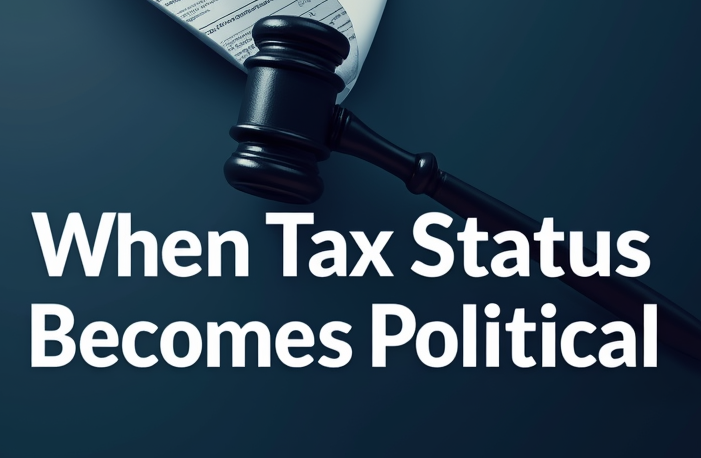Legislative Round-Up | August 2021
Included in this Round-Up
- Momentum Grows for Extending the Universal Charitable Deduction
- The Latest on the Postal Front
- Schedule B: State Charity Officials Toe the Line
- State Legislation
Momentum Grows for Extending the Universal Charitable Deduction
The Universal Charitable Deduction was newly created in 2020 to incentivize charitable giving in the face of the pandemic, and also to compensate for the impact of the 2017 Tax Legislation that increased the threshold for itemizing deductions, removing the incentive to give — tax deductibilty — for the 88% of taxpayers who do not itemize, and thus can no longer claim a deduction when supporting a charitable cause.
As we’ve reported over the past several months, this year, companion bills in the Senate and House have been introduced to extend the Universal Charitable Deduction into tax year 2022, with the current statute scheduled to expire on December 31, 2021.
Importantly, this legislation would raise the current cap on the Universal Charitable Deduction from its current level of $300 for individual taxpayers and $600 for married couples filing jointly to roughly $4,000 for individuals and roughly $8,000 for married couples.
The legislation would also eliminate the current exclusion of gifts to Donor Advised Funds (DAFs).
We are optimistic to see momentum on the Universal Charitable Deduction growing. In the Senate, S. 618, the Universal Giving Pandemic Response and Recovery Act has increased its number of cosponsors to a total of 11 Senators. This bipartisan group is led by Senators James Lankford (R-OK) and Chris Coons (D-DE). In the House, an identical bill, H.R.1704, now has 15 cosponsors and is led by Congressman Chris Pappas (D-NH) and Congresswoman Jackie Walorski (R-IN).
Over the last few years, TNPA has worked closely on this legislation, particularly with the two Senators leading this effort — Senators Lankford and Coons. Extending the Universal Charitable Deduction, and ideally increasing the current cap, is one of TNPA’s top priorities.
The Latest on the Postal Front
With the next postal rate increase scheduled to take effect in just a few days postal issues are front and center for TNPA. Specifically, on Sunday, August 29, postal rates will increase 6.5% to 8.5% (depending on the class of mail), an increase that far exceeds the CPI and is on top of the 1.5% CPI increase that already went into effect in January of this year.
As previously reported, TNPA is approaching the challenge on the postal front in a multi-dimensional manner. In the courts, we are supporting a lawsuit filed by the Alliance of Nonprofit Mailers in the DC Federal Court of Appeals that challenges the new rate-making authority recently granted the Postal Service by the Postal Regulatory Commission. TNPA is an “intervenor” in the case, with the oral argument before the Court of Appeals coming up in just a few weeks on September 13. A decision is expected later this year or early next year.
On Capitol Hill, TNPA continues to advocate for broad postal reform legislation as an important solution to the current postal challenge. As previously reported, TNPA staff and members met with the offices of five Senators on June 22, focusing exclusively on postal policy, with the centerpiece meeting being with Senator Susan Collins (R-ME), who co-authored the Postal Reform Act of 2006, the last major piece of postal legislation enacted by Congress.
The legislation currently before Congress — identical bills in the House (H.R. 3076) and Senate (S. 1720), the Postal Service Reform Act of 2021 — has several positive provisions including moving the enormous postal retiree healthcare cost away from the USPS and onto Medicare where most retiree healthcare costs reside.
However, the legislation as currently written does NOT stop future postal rates from increasing faster than the rate of inflation or CPI. Limiting future rate increases to the rate of inflation or CPI is a top priority for protecting the nonprofit sector!
In terms of the current state of play, clearly the outcome of the case before the Court of Appeals looms large. Were the Court of Appeals to accept our argument that the Postal Regulatory Commission exceeded its authority under the Postal Reform Act of 2006 by granting the Postal Service the ability to raise rates beyond the rate of inflation, we would be in a strong position going forward. While TNPA will be hoping for the best in terms of the court decision, we are also planning for the worst. To that end, we will continue our dialog with legislators with what our message has been, and will continue to be, that we need postal legislation that protects nonprofits and the social sector from excessive future postal rate increases.
Schedule B: State Charity Officials Toe the Line
NJ & NY follow CA
On July 1, the US Supreme Court ruled California could not require donor information as a price for a nonprofit’s exercise of its 1st Amendment right to raise funds. The case, Americans for Prosperity Foundation v. Bonta**, overturned a decision by the Federal 9th Circuit which permitted the state to continue requiring nonprofits to submit Schedule B, Form 990 (containing identities and gift amounts of major donors) as part of the solicitation registration process.
The solid 6-3 decision of the Court was aided — in no small measure — by the amicus brief filed by The Nonprofit Alliance Foundation. More than any other document before the Court, the TNPA brief with its 126 signers presented a clear picture of the broad, nonpartisan support for donor privacy within the nonprofit community.
The California Attorney General’s office promptly acknowledged the decision on its website. But New Jersey and New York were not parties to the case and so, were not explicitly bound by the ruling. Court-watchers wondered whether either would take the tenuous position their Schedule B requirement was materially different than California’s.
After taking some time to think it over, both NY and NJ have now posted prominent notices on their websites saying Schedule B will no longer be required (nor will there be any enforcement action for a previous withholding of the donor information). NJ appears to concede it is squarely covered by the AFPF case. NY, apparently hedging, says it has “suspended” its Schedule B requirement. Given the Court’s ruling and the many potential litigants eager to enforce it, we’re betting NY will steer clear of Schedule B and donor privacy issues.
** The custom in suits against state government is to name the individual heading the agency being sued – in this instance the California AG. This case started out as AFPF v. Harris (Kamala), then became AFPF v. Becerra (Xavier) and finally AFPF v. Bonta (Rob). Those California AGs move around a lot, don’t they?
State Legislation
We continue to follow legislation in the states. Read about state bills that could impact the work of the nonprofit sector on the TNPA website.



